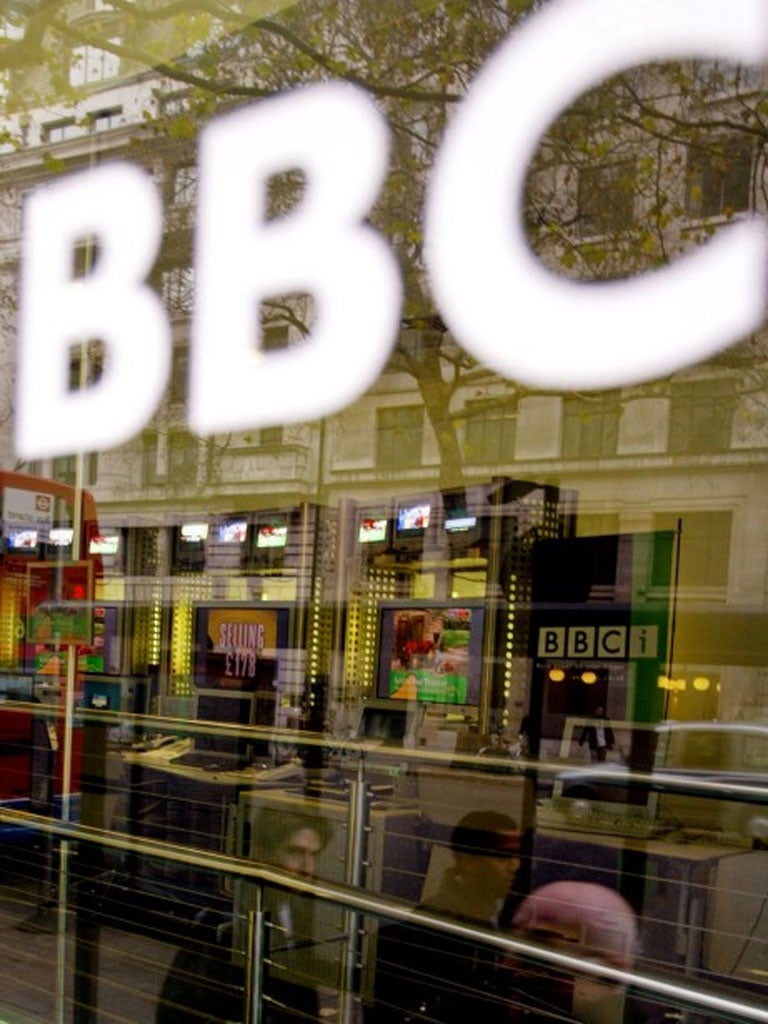BBC must rebuild trust with women employees, equality watchdog finds
‘We are deeply disappointed by the findings that do not reflect our experiences,’ says BBC Women

No illegal acts of pay discrimination were carried out by the BBC, an investigation by the equality watchdog has found, but the corporation must rebuild trust with female employees.
The Equality and Human Rights Commission has called for the broadcaster to introduce a series to measures to ensure greater transparency, but some BBC employees have criticised the report for not going far enough.
Carrie Gracie, the BBC’s former China editor who the broadcaster apologised to in 2018 after acknowledging she had been underpaid for years in comparison to male colleagues, hit out the report.
Ms Gracie, who agreed a financial settlement with the BBC, tweeted: “EHRC report on BBC equal pay feels like whitewash. Examined just 10 cases to reach the headline below? Seriously?
“FOLLOW THE ££ INSTEAD: BBC forced to pay out to 100s of bbcwomen. Moral of story: don't rely on regulator but stay strong, calm, united + JUSTICE WILL PREVAIL.“
Ms Gracie accused the broadcaster of discrimination and breaking equality law when she resigned from her role in 2018.
BBC Women, a campaign group which represents more than 170 presenters and producers, has fiercely criticised the report due to its findings not being reflective of their own experiences.
“We are deeply disappointed by the findings that do not reflect our experiences,” BBC Women said. “The EHRC tells us they found no breach of the law in how the BBC handled pay complaints – this does not address the systemic issue of unequal pay suggested by the hundreds of pay increases and settlements the BBC has made to women.”
The campaign group added: ”Out of over 1,000 complaints, the EHRC looked in depth at only 10 cases and accepted the BBC’s excuses for why these were not ‘likely’ to be equal pay cases. We question why the EHRC discounted equal pay cases it knows the BBC has been forced to settle. New cases are corning forward and women are still heading to court. We fight on.”
The watchdog’s report states the publicly funded broadcaster accepts its historical practices were not fit for purpose and has made substantial changes since 2015. It discovered inadequate record-keeping on how decisions about pay were made, leading to confusion and poor communication with women making complaints.
Caroline Waters, who is the Equality and Human Rights Commission interim chair, said it is “easy to see” how trust between female employers and the broadcaster has collapsed.
She said: “Many women felt their voices were not being heard and have been left feeling confused as to how decisions about their pay have been made.
“This took a heavy emotional toll on those involved in the process and the strength of feeling of women at the BBC should not be understated.
“While we have not found any unlawful acts in our investigation, repairing the damage caused by these issues requires continued leadership and we hope the BBC board takes forward our recommendations.”
The watchdog launched an investigation into equal pay at the BBC in March last year – adding it suspected some female BBC employees “have not received equal pay for equal work”.
It examined whether men and women are paid the same salary for the same job, saying it has “been a legal requirement for almost 50 years”.
Michelle Stanistreet, general secretary of the National Union of Journalists (NUJ), said many of its members will feel the report fails to tackle their “lived experiences”.
She added: ”The fact that so many individual settlements, including Samira Ahmed's NUJ-backed tribunal win, have taken place underlines the clear problems that have existed.
“It's also important to acknowledge that where settlements have taken place, it's taken an enormous amount of determination, effort and persistence on the part of individuals determined to hold the BBC to account, and that comes at a practical and emotional cost.
“The BBC has held its hands up and accepted that its pay processes before 2015 were not fit for purpose. The changes acknowledged by the EHRC since have been achieved with enormous effort and pressure from the joint unions but they are very much a work in progress.”
Sam Smethers, chief executive of leading gender equality charity Fawcett Society, called for the BBC to implement pay practices which value their female employees on “equal terms” with men.
She added: “The fact that so many women have successfully challenged, both privately and in the courts, unequal pay at the BBC, securing significant pay rises and backpay in some cases, suggests a systemic problem with pay discrimination at the organisation.
"Unfortunately, in the few cases they looked at in depth the EHRC investigation did not find proof of that. This will be disappointing to so many women affected. It's not just the high profile cases, it's also women technicians, engineers and other backroom staff who have found themselves underpaid when compared with their male colleagues.
“This is why we are campaigning for the Right to Know, so that women can address pay inequality by finding out what their male colleagues earn if they suspect pay discrimination.”
Libby Purves, who presented Radio 4’s Midweek from the 1980s until it was stopped in 2017, recently warned the BBC subjects older female radio presenters to ageism and sexism.
The leading broadcaster said there are double standards for male and female presenters with the latter more likely to be judged by their looks.
Ms Purves argued the appearances of radio presenters used to be deemed irrelevant unless their voice “actually quavered” or their views and language characterised them as being “an old buffer”.
Additional reporting by Press Association
Subscribe to Independent Premium to bookmark this article
Want to bookmark your favourite articles and stories to read or reference later? Start your Independent Premium subscription today.




Join our commenting forum
Join thought-provoking conversations, follow other Independent readers and see their replies
Comments